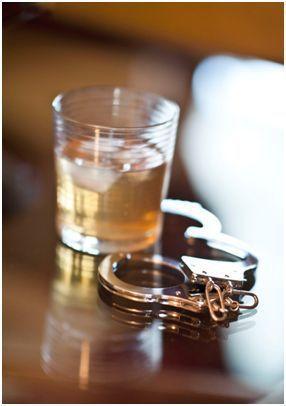Should all DUI’s be a bar to Deferred Action under Obama’s New Program?
Ernesto, now twenty-six years old, was brought to the United States when he was five years old. He has been in the United States ever since and graduated from high school a few years ago. He has attended some college. He meets all of the eligibility requires for deferred action except one. When he was 20, Ernest was charged with driving under the influence due to alcohol. Although his level of alcohol was not over the legal limit, because he had some alcohol when he was under age and was driving he was found guilty of N.J.S. 39:4-50.14 a baby DUI.

Under the new deferred action initiative, if you were convicted of a single significant misdemeanor, you are ineligible. A significant misdemeanor is defined as:
A federal, state, or local criminal offense punishable by no more than one year of imprisonment or even no imprisonment that involves: violence, threats, or assault, including domestic violence; sexual abuse or exploitation; burglary, larceny, or fraud; driving under the influence (DUI) of alcohol or drugs; obstruction of justice or bribery; unlawful flight from arrest, prosecution, or the scene of an accident; unlawful possession or use of a firearm; drug distribution or trafficking; or unlawful possession of drugs (emphasis added).
Despite this definition, it is still unclear which offenses Department of Homeland Security (DHS) will deem significant. Without additional clarification, many potential applicants, like Ernesto, will not know whether they are eligible for deferred action.
In recent years, DHS has given increased scrutiny to DUIs. Generally, a single misdemeanor (or multiple) conviction for DUI does not carry immigration consequences. For this new program, DHS says that a single, misdemeanor DUI qualifies as a significant misdemeanor. While I would not recommend such a categorical approach, at the very least, DHS should recognize that not all misdemeanor DUIs are the same, and thus, not all DUI convictions should bar deferred action. All 50 states criminalize driving with a blood alcohol content (BAC) of .08 or above. However, New Jersey also punishes a person under 21 for driving with a BAC of .01. This zero tolerance law is not about public safety, but to prevent persons from drinking and driving as adults. New Jersey does not count a baby DUI as a DUI for sentence purposes in the event the defendant is later charged with a subsequent DUI. If no distinction is made between adult and youth DUIs for purposes of the deferred action, young driversthe very population this policy is meant to helpwill be negatively and disparately impacted. Because of the difference between adult and youth DUI offenses, DUIs should not be an automatic bar to deferred action.
In addition, I would argue that a single, adult misdemeanor DUI conviction, particularly one that occurred several years before, should also not bar deferred action. Ernesto learned his lesson. It was not evidence of an ongoing problem. Without more, there is no indication that he is a threat to public safety. For example, what if Ernesto was (1) charged with a DUI for sitting intoxicated in an inoperable vehicle, or (2) biking while intoxicated, in neither is a danger to others. DHS should consider mitigating factors and positive equities before determining that someone like Ernesto, an otherwise eligible applicant, or barred due to a single misdemeanor DUI conviction.
Cases like Ernesto highlight why you should always challenge any DUI charge. Although Ernesto could not have predicted that a conviction for a baby DUI or even an adult DUI which at the time had no immigration consequences would have barred him from this new program, he still would have paid dearly for a DUI conviction.
For a first offense DUI, New Jersey has three tiers, depending on the level of BAC. If convicted of the minimum offense or BAC between .08 to .10%, you are facing:
- Fines between $1044 and $1,194 of which $794 is mandatory and $250.00 to $400.00 is discretionary.
- A $3,000 insurance surcharge payable over three years;
- You will also attend alcohol awareness classes for 12-48 hours during 2 consecutive days of 6 hours or longer each day;
- You may be sentenced to up to 30 days in jail;
- You will lose your license in New Jersey for at least 3 months;
- You may be forced to participate in supervised visitation program as either a condition of probation or a form of community service
If you are facing a second offense, or a third offense. If you want more information regarding DUI’s go to our website at www.AndresMejerLaw.com and request a free copy of my book The Truth about Your DUI.



